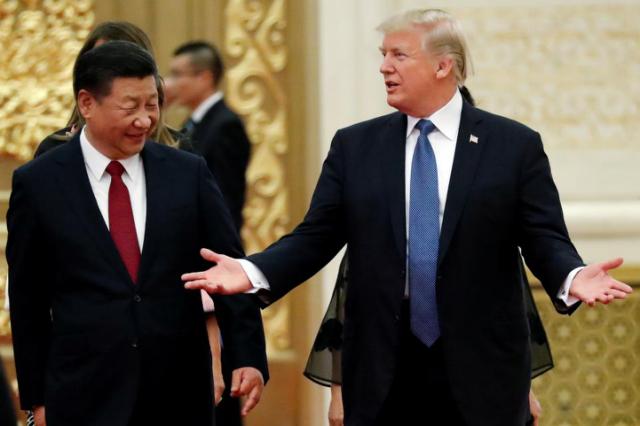When he accused the World Health Organization (WHO) of going soft on China over the COVID-19 pandemic and suspended U.S. payments to the agency, President Donald Trump put the strategic question of the century on the table. What’s the best way to win the global competition with Beijing: America First confrontation or multinational cooperation? The fight over the WHO shows why the right answer is a matter of life and death for hundreds of millions of people.
Trump and his allies say that the Geneva-based WHO botched the global pandemic response by praising Beijing’s handling of the crisis, parroting its denial of the COVID-19 threat, and opposing travel restrictions to and from the country. “The WHO willingly took China’s assurances to face value,” Trump said Tuesday as he announced the aid suspension at the White House. “Reliance on China’s disclosures likely caused a 20-fold increase in cases worldwide,” he said.
Even some of the President’s critics agree that the WHO was too deferential to China at the start of the crisis. But they say undermining the agency is self-defeating. Since WWII, the U.S. and liberal democracies have fought to define the missions and standards of international bodies like the WHO. Cutting funding to the agency in the middle of a global pandemic, the critics say, just guarantees more, not less, sway by China at a time when the country is seeking to expand its influence over international bodies. “If we cede the playing field, obviously China is going to fill in that space,” says Amb. Joseph DeTrani, former CIA director of East Asia Operations. “They are doing that as we speak.”
It’s not just the WHO. The attack on the agency follows a Trump administration pattern of threatening to strip U.S. funding from some international organizations and to withdraw from others, like the U.N. Human Rights Council. That too plays to China’s broader strategy of transforming the U.N. “into a platform for its own foreign policy,” says Kristine Lee, Associate Fellow with the Asia-Pacific Security Program at the Center for a New American Security. The Chinese Communist Party sees COVID-19 as an “opportunity to launch itself onto the global stage” that has “catalyzed a renewed sense of ambition,” she says.
Such ambitions are relatively new. Deng Xiaoping, the successor to China’s revolutionary founder Chairman Mao Zedong, adopted an isolationist strategy, and for years China avoided international entanglements. But the current Chinese President Xi Jinping has sought expansion of influence in international bodies. China has already maneuvered Party officials into top spots in at least four of the U.N.’s 15 specialized agencies, while the United States leads only one. And China’s efforts to influence the WHO, the health arm of the U.N., are a good example of that strategy, experts on both sides of the debate say.
At the WHO, China’s contributions have grown by 52% since 2014 to approximately $86 million over the agency’s two-year funding cycle, according to the Council on Foreign Relations. That remains a modest sum when compared to the U.S.’s $839 million over the same period, but it bolsters the idea that China is a rising rather than a static or declining influence within the U.N. China has exerted indirect political influence at the same time. Beijing was a strong backer of the nomination of now-Director General Tedros Adhanom Ghebreyesus, a former senior Ethiopian government official, and Beijing invited him to speak in China before his 2017 election to the position.
It remains unclear just how much sway such moves have actually yielded Beijing inside the WHO, but the agency’s response to China’s role in the COVID-19 outbreak has drawn criticism from many quarters. When the crisis began early this year, the WHO praised China’s transparency in fighting the virus, and Dr. Tedros declined to criticize Beijing’s early moves to silence and even jail medical professionals who dared mention the spreading malady. The WHO also bolstered Beijing’s early dismissal of fears that the virus was highly contagious, tweeting on January 14th that there was no evidence of “human to human” spread, an epidemiological term of art meaning it passes easily from one person to the next to the next. When Trump imposed travel restrictions on China, Dr. Tedros warned such restrictions could increase “fear and stigma, with little public health benefit.” And the WHO has failed to secure actual DNA samples of the virus, which could help determine where the outbreak started, possibly in China’s controversial live-animal “wet markets,” and how much it has evolved.
Kimberly Dozier, TimeApril 16, 2020













